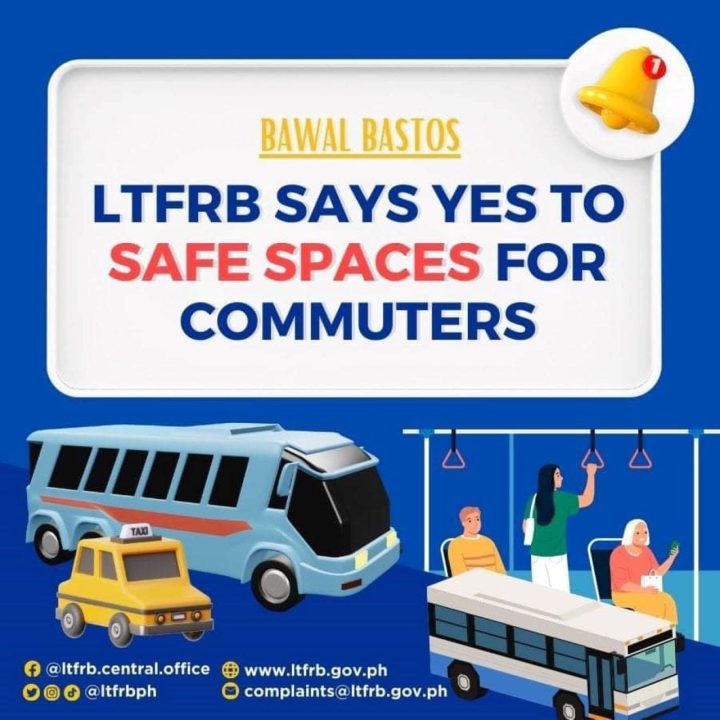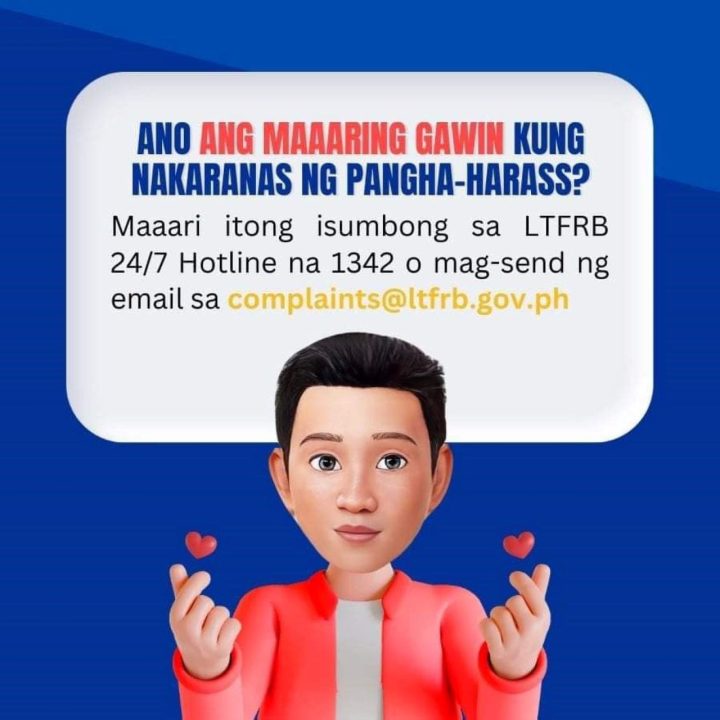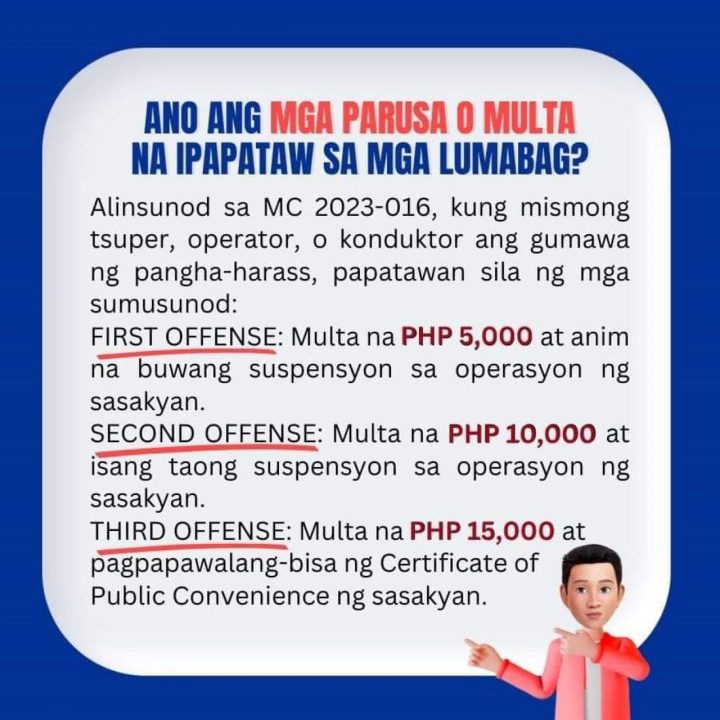
The Safe Spaces Act or, more properly, Republic Act 11313, has been around for a very long time now. It’s been around since 2018. Six years hence, many of us are unaware that some things people might say or do, or even act out, are against the law that protects the general public. Yes, this also applies to those who are taking public transport and are in public areas, so with the turn of the year, let’s have a refresher on RA 11313, shall we?
The Safe Spaces Act says NO to harassment of all kinds, especially those that are gender-based

Photo: Land Transportation Franchising and Regulatory Board
Everyone deserves a peaceful journey via public transportation. Having to worry about people throwing gender slurs or being cat-called or called names are things that no one would want to happen to themselves. It’s in this light that – with respect as its backbone – the Safe Spaces Act has been written and passed into law. What is it, exactly?

Photo: Land Transportation Franchising and Regulatory Board
The main focus of RA 1131 is to address harassment, gender-based harassment more specifically. As we mentioned earlier, this law must be followed and enforced in public forms of transportation as well as in any public areas, along sidewalks or streets, online, in the workplace, and in educational and training facilities. Of course, this law is not to be limited by the specific areas lined up in the previous sentence. It is, in fact, a law that applies to protect everyone from harassment of any sort everywhere.

Photo: Land Transportation Franchising and Regulatory Board
The fact remains that the most common for of harassment is that of sexual and gender-based nature. That said, above you can see a list that contains the most common acts that people do that are also actually punishable by the law! Catcalling, indecent and uncalled-for comments, sexist slurs, any actions or statements that encroach on anyone’s personal life, stalking, touching of anyone’s body or any part of one’s body, and other malicious actions are all acts of harassment under the Republic Act and if caught doing any, trust that you can and that you should be reported.

Photo: Land Transportation Franchising and Regulatory Board
How do we do that? As this article is all about the relation of the Safe Spaces Act to the public’s safety and the automotive world, the LTFRB has a 24-hour, 7-day hotline as well as an active email address where violations of this law can be reported. Those who might fall victim to any of these can call 1342 or send an email to complaints@ltfrb.gov.ph.
Stranger or not, anyone who violates this law must immediately be reported. We can’t expect everyone to have video evidence, but a prompt report is a great start. If the violation happens aboard public transport, it is expected that the driver and/or conductor (as well as the PUV operator) will step in to protect a passenger’s welfare and safety.
But what if it’s the driver or conductor or an operator him/herself that commits acts against the Safe Spaces Act?

Photo: Land Transportation Franchising and Regulatory Board
Of course, they are not exempted from the law.
Memorandum Circular (MC) 2023-016 supplements RA 11313 by setting out guidelines and penalties for anyone who commits gender-based or sexual harassment inside public utility vehicles. If the individual reported is a PUV driver, conductor, or operator, the following sanctions will be handed:
First offense: PHP 5,000USD 85INR 7,227EUR 82CNY 620 fine, 6-month suspension of the PUV’s license to operate
Second offense: PHP 10,000USD 170INR 14,453EUR 164CNY 1,240 fine, 1-year suspension of the PUV’s license to operate
Third offense: PHP 15,000USD 255INR 21,680EUR 245CNY 1,860 fine, cancellation of the PUV’s license to operate or, more properly, its Certificate of Public Convenience or “franchise”
–
Sometimes, it takes a simple reminder and a lot of sharing of knowledge to make the world – and public transportation – a better and safer place. RA 11313 or the Safe Spaces Act aims to do just that, but of course, a mere document can’t do it alone. All of us must keep our eyes and ears open, and all of us must protect ourselves and others from any acts of sexual and gender-based harassment. It may be difficult, but if more of the public is made aware, then maybe, just maybe, we can all “have each other’s backs”, so to speak.
Thanks for the reminder, LTFRB. And to everyone out there, stay safe, be vigilant, and do not be afraid to take a stand against harassment.





